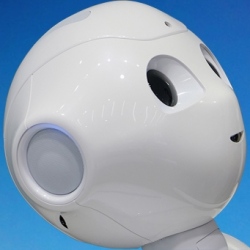
In an interview with the Telegraph, prompted by the recent well-publicised games of Go between top-level human player Lee Se-dol and Google’s AI AlphaGo in which the latter resoundingly triumphed to an unexpected degree, lead Schmidt to observe: "Now there is a sense that AI has finally arrived."
Given this sterling Go success, the interviewer raised the prospect of AI-driven robots becoming better than humans in all sorts of avenues of work, thus threatening jobs. And Schmidt openly admitted that more routine, manual roles will indeed be in danger of being taken over by robots.
Schmidt said: "There’s no question that as [AI] becomes more pervasive, people doing routine, repetitive tasks will be at risk."
He added: "I understand the economic arguments, but this technology benefits everyone on the planet, from the rich to the poor, the educated to uneducated, high IQ to low IQ, every conceivable human being. It genuinely makes us all smarter, so this is a natural next step."
Of course, progress is inevitable, particularly when AI is going to drive more efficient business and cost-effectiveness, but as Dave Coplin, Microsoft’s futurologist in the UK observed, the best thing to do to combat any job uncertainty is to become good at what machines can’t do well, at least for now.
